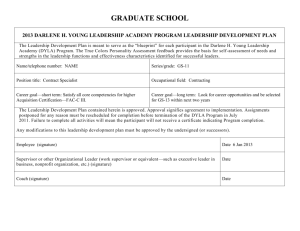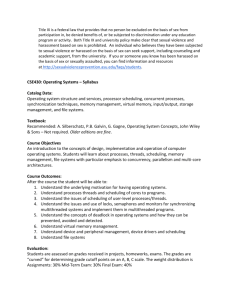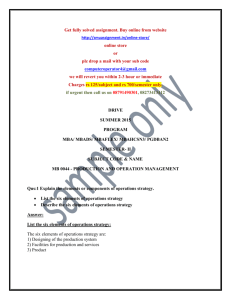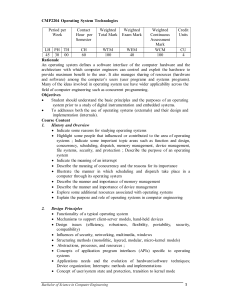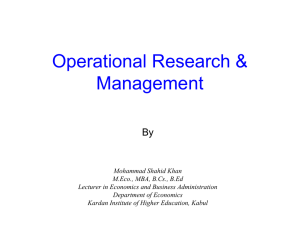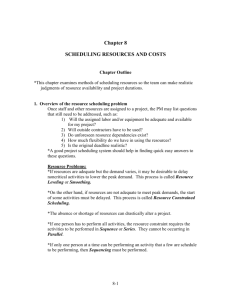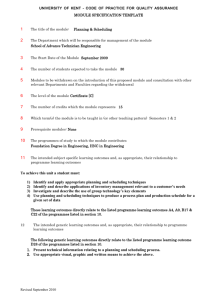Integrated scheduling and control of sequential batch
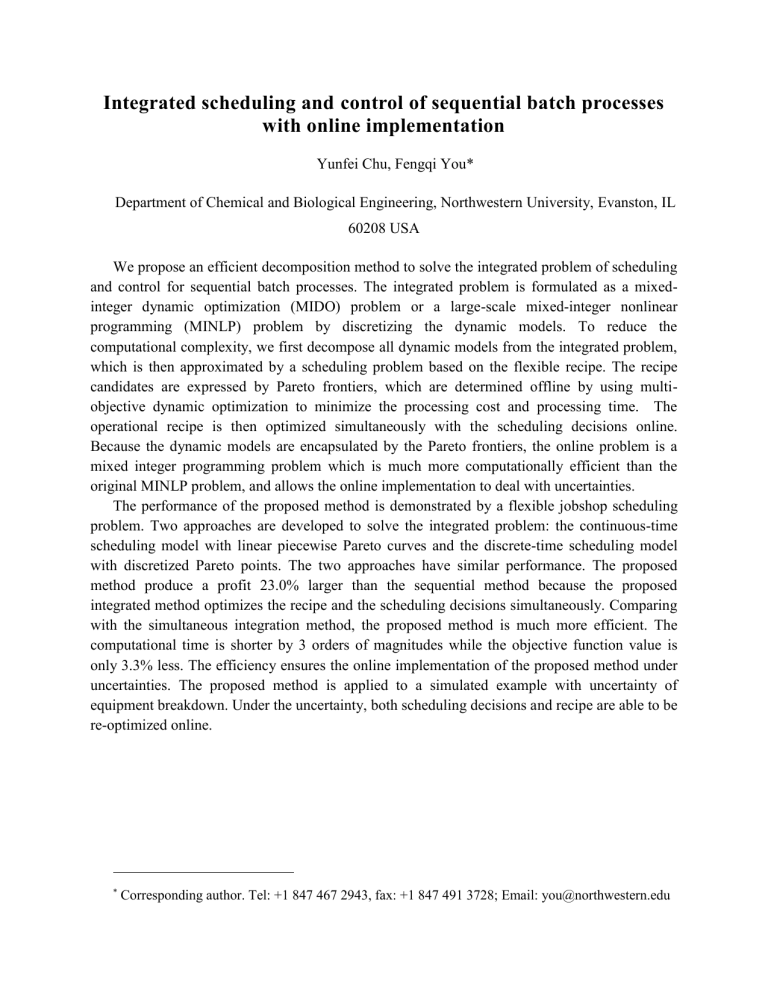
Integrated scheduling and control of sequential batch processes with online implementation
Yunfei Chu, Fengqi You*
Department of Chemical and Biological Engineering, Northwestern University, Evanston, IL
60208 USA
We propose an efficient decomposition method to solve the integrated problem of scheduling and control for sequential batch processes. The integrated problem is formulated as a mixedinteger dynamic optimization (MIDO) problem or a large-scale mixed-integer nonlinear programming (MINLP) problem by discretizing the dynamic models. To reduce the computational complexity, we first decompose all dynamic models from the integrated problem, which is then approximated by a scheduling problem based on the flexible recipe. The recipe candidates are expressed by Pareto frontiers, which are determined offline by using multiobjective dynamic optimization to minimize the processing cost and processing time. The operational recipe is then optimized simultaneously with the scheduling decisions online.
Because the dynamic models are encapsulated by the Pareto frontiers, the online problem is a mixed integer programming problem which is much more computationally efficient than the original MINLP problem, and allows the online implementation to deal with uncertainties.
The performance of the proposed method is demonstrated by a flexible jobshop scheduling problem. Two approaches are developed to solve the integrated problem: the continuous-time scheduling model with linear piecewise Pareto curves and the discrete-time scheduling model with discretized Pareto points. The two approaches have similar performance. The proposed method produce a profit 23.0% larger than the sequential method because the proposed integrated method optimizes the recipe and the scheduling decisions simultaneously. Comparing with the simultaneous integration method, the proposed method is much more efficient. The computational time is shorter by 3 orders of magnitudes while the objective function value is only 3.3% less. The efficiency ensures the online implementation of the proposed method under uncertainties. The proposed method is applied to a simulated example with uncertainty of equipment breakdown. Under the uncertainty, both scheduling decisions and recipe are able to be re-optimized online.
* Corresponding author. Tel: +1 847 467 2943, fax: +1 847 491 3728; Email: you@northwestern.edu

